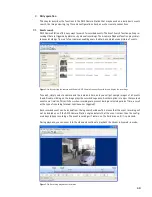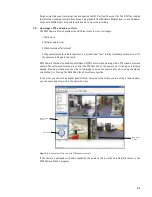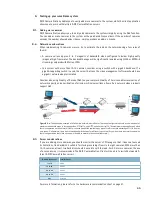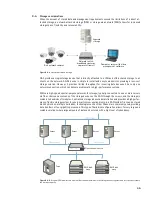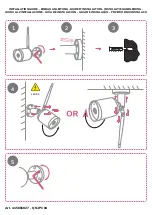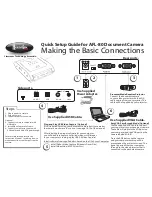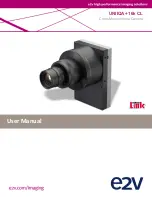
48
Conclusion
We hope this document has been helpful in providing guidelines for implementing an IP-Surveillance
system. While there are many considerations to take into account, it is relatively easy to set up and
operate an Axis IP-Surveillance system once you have defined your application requirements and deter-
mined the components you require.
Setting up an Axis IP-Surveillance system – Quick checklist:
> Define your surveillance needs
- Draw a plan of your installation
- Select points of interest to view (area of coverage)
- Position each camera: define what you want to be able to capture with each camera
- Consider environment: light conditions
- Consider cabling to cameras
- Position the recording server
> Network camera and/or video encoder selection
- Image quality requirements: resolution, compression and frame rate
- Light sensitivity and lens selection (re: camera)
- Outdoor/indoor, fixed/fixed dome/PTZ/PTZ dome network camera
- Consider needs such as Power over Ethernet (PoE), video motion detection, audio…
- Housing, mounting and other accessories
- Buy and try: Buy one camera to test its quality
> Hardware components
- Additional switches (PoE, wireless options)
- Additional light sources
- Power supplies and eventually UPS
- Server for video management software
- Hard drives (local disks, SAN, RAID, etc.)
> Software
- Select a software package for your required functionality
- Purchase licenses that fit the number of cameras
- Specify image quality and frame rate requirements for each camera
- IP address range for cameras and servers
- Calculate hard disk usage
- Configure your cameras and their recording settings
- Configure video motion detection settings
- Grant user access and authentications
> Operations and maintenance
- Check recorded events for all your cameras
- Check motion detection settings again
- Check hard disk free space and eventually adjust recording options
Appendix
Letter chart on page 49. (Place the letter chart at the distance where you want an image to be captured.
Rows 5 and 6 should be clear for recognition purposes; rows 7 and 8 and most gray shades should be
clear for identification purposes.)
Printed with permission from SKL – Statens kriminaltekniska laboratorium
9.
10.
Summary of Contents for IP-Surveillance system
Page 49: ...49 ...







